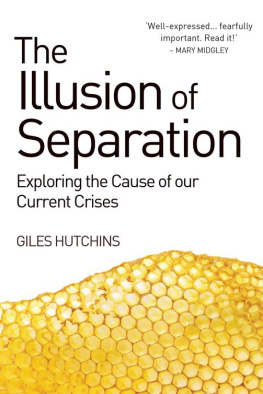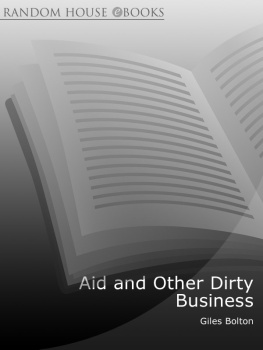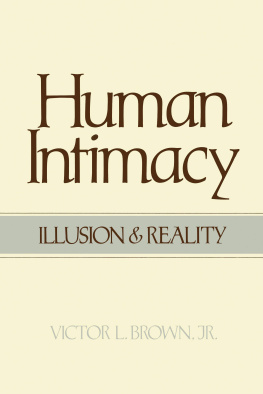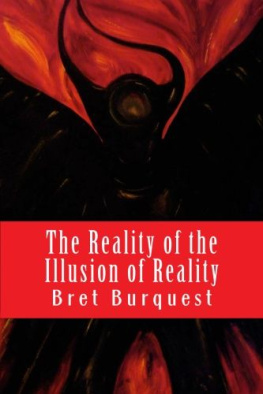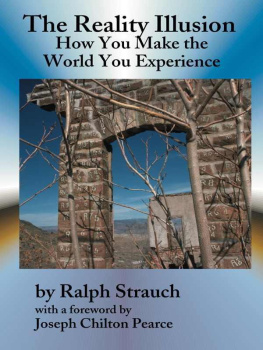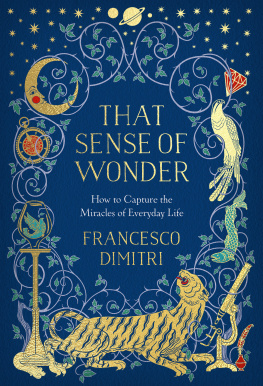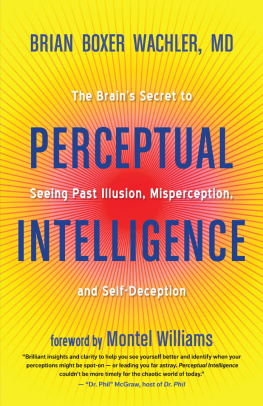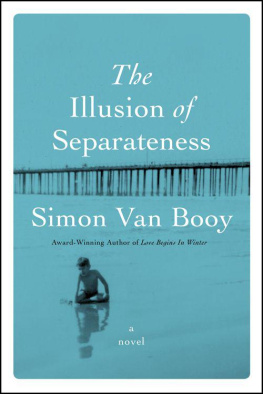Praise for The Illusion of Separation
Robert Sardello, PhD, author of Love and the Soul: Creating a Future for Earth
Giles Hutchins takes us on an amazing tour de force, the intellectual tour of our lives. With ease and incredible clarity, he reveals simultaneously the history and the philosophy and the implications of the dire plight Earth is now within Never before, that I know of, has the choice of life, true life, or the path of degradation been put before us with such clear equanimity.
Catherine Keller, Professor of Constructive Theology, Drew University, author of On the Mystery
Cutting through habitual denials and academic evasions, Giles Hutchins exposes the delusion at the root of our planetary crisis. And with a holographic richness of resources and disciplines, he disclosesindeed activatesthe attitude that might just provoke our needed evolution. This is a wise and urgent text: may it be heard, and soon!
Llewellyn Vaughan-Lee, PhD, Sufi teacher and author of Spiritual Ecology: The Cry of the Earth
With clarity and insight Giles Hutchins analyses the roots of our present collective mindset of separation, and yet shows how science and spirituality point to a deeper, inclusive consciousness. Here are signposts for a future that is vitally needed in the present moment.
Tim Smit, KBE, founder of The Eden Project
This is a powerful and timely work that asks the most important question of all Have we evolved from Homo sapiens sapiens (so good we named ourselves twice) into Homo Hubris - the ape that lost its nature.
Chris Laszlo, PhD, author of Flourishing Enterprise: The New Spirit of Business
A treasure of a book that I will share widely; a brilliantly written insightful tour de force.
Stephan Harding, Head of Holistic Science, Schumacher College
In this wonderful book, Giles Hutchins helps us to understand the cultural roots of the current crisis and suggests modes of leadership that can help us to find a more fruitful relationship with nature. Well written, well researched and full of insight, this book will open your heart and mind to a deeper way of being in the world.
Mary Midgley, philosopher, author of Are You an Illusion?
This is a well-expressed book on a fearfully important topic. Read it!
Ian Skelly, broadcaster and writer, co-author of Harmony by HRH The Prince of Wales
As the world cries out for the shift in perception we know is needed, this is a positive response to the deep seated crisis we face. We may be aware of being, but we have lost contact with the beingness of which we are aware. But how do we opt in rather than opt out? How do we participate in creation, rather than seek its control and mere consumption? Here lie the answers. Ours is not the generation to enjoy the fruits of such a shift. As this book so ably demonstrates, it is our task is to make the turning possible. The brilliance of it is that it explains how.
Simon Robinson, author of Holonomics
The Illusion of Separation is a richly thought-provoking journey which teaches us how we can rediscover our humanity, and become inspirational leaders and authentic co-creators.
Tim Mac Macartney, Founder of Embercombe and author of Finding Earth, Finding Soul
Giles Hutchinss new book The Illusion of Separation took me on a roller-coaster journey of ideas, distant memories, broken dreams, and new horizons. He has spread a map at our feet and dares us to look. We, the prodigal species, who with Prometheus help, stole fire from the gods and imagined ourselves superior. And where does he leave us? Giles is on a personal journey walking home and the path is wide with room for me and you, and all our friends. Home to our true place of belonging.
Peter Hawkins, author and Professor of Leadership, Henley Business School
The biggest challenge facing our world today is the urgent need for the human species to evolve its collective ways of thinking. Not since reading the work of Fritjof Capra, have I read a book that so clearly brings together many of the ideas, research and writing that provide the ingredients to help us explore the transformation in our ways of seeing, thinking and being. The Illusion of Separation is medicine we all need.
This book is dedicated to Nature and her magical ways, and also to my daughter Lilly-Belle who, like all daughters and sons, is a uniquely beautiful expression of Nature.
Contents
Only those who will risk going too far can possibly find out how far one can go.
T.S. Eliot
In writing this book I have pushed the envelope of my own understanding. I do not profess to be an expert in the deep areas I explore here and have gained inspiration from many sources and experts, far more learned than I, whose work is detailed in the Endnotes and References. Here I would like to explicitly acknowledge people who have directly engaged with me during the many months of developing, writing and editing this book: Iain McGilchrist, Rupert Sheldrake, Tim Smit, Simon Robinson, Chris Laszlo, Christopher Moore, Nick Bellorini, Carolyn Lebel, Stefanie Koehler, Emma Kidd, Nadine Andrews, Sue Blagburn and Mike Edwards. I would like to acknowledge particular thanks to Roy Reynolds (for his deep insights and edits on a number of sections), to Joseph Milne (for his invaluable contributions to Chapter Four), to Howard Williams (for his unwavering support), to Spencer Williams (for encouraging me to go one step beyond), to my wife Star (for living up to her name) and last, but not least, to Alan Rayner (for his advice, edits, numerous insights and companionship throughout).
Elliot, Thomas Stearns (1931) Preface to Transit of Venus (Poems by Harry Crosby).
I regard the grooves of destiny into which our civilization has entered as a special case of evolutionary cul-de-sac. Courses which offered short-term advantage have been adopted, have become rigidly programmed, and have begun to prove disastrous over longer time. This is the paradigm for extinction by way of loss of flexibility.
Gregory Bateson
What has become widely referred to as Western civilisation has brought great technological advancement and social change over the millennia. Its underpinning scientific-philosophy is now the dominant paradigm in most parts of our world, regarded by many as the only viable way ahead and a panacea for all our ills. The cultural belief has grown that, with enough time and money, all problems can be solved through this science and technology. One has only to be reminded of the great strides we have made in, for instance, computing, manufacturing, medicine and food production to recognise the attraction of this creed.
Yet something is amiss. We seem to be facing increasingly insurmountable social, psychological, economic and environmental problems of epic proportions. Many are now recognising that these problems run deep and wide. These are pivotal times for humanity. And yet the regular reaction to our plethora of problems is to find scientific, monetary or technological fixes way downstream from the inherent problems themselves. All too often these downstream fixes actually exacerbate the underlying problems. As the scholar Joseph Milne notes, There is a tendency in our age to rush to change the manifest effects of wrong actions without seriously considering the root causes.
Have we become addicted to a pathway that undermines our very evolution? Are our sustainability initiatives optimising inherently unsustainable strategies? Would it not be wiser to take sufficient pause to explore and reveal the root causes of our many crises and remedy them there rather than trying in vain to deal with their ever deepening, spreading and complicating down-stream ramifications? By stepping back to ponder, we can start to identify the ensemble of intrinsic, culturally embedded problems within our social, economic, scientific and philosophical Western paradigms for convenience referred to collectively herein as the Western paradigm.

